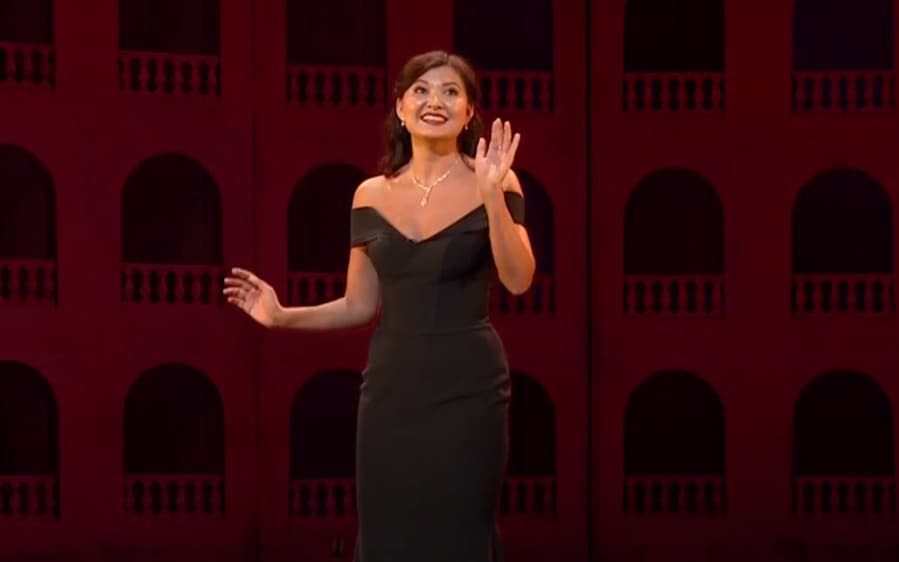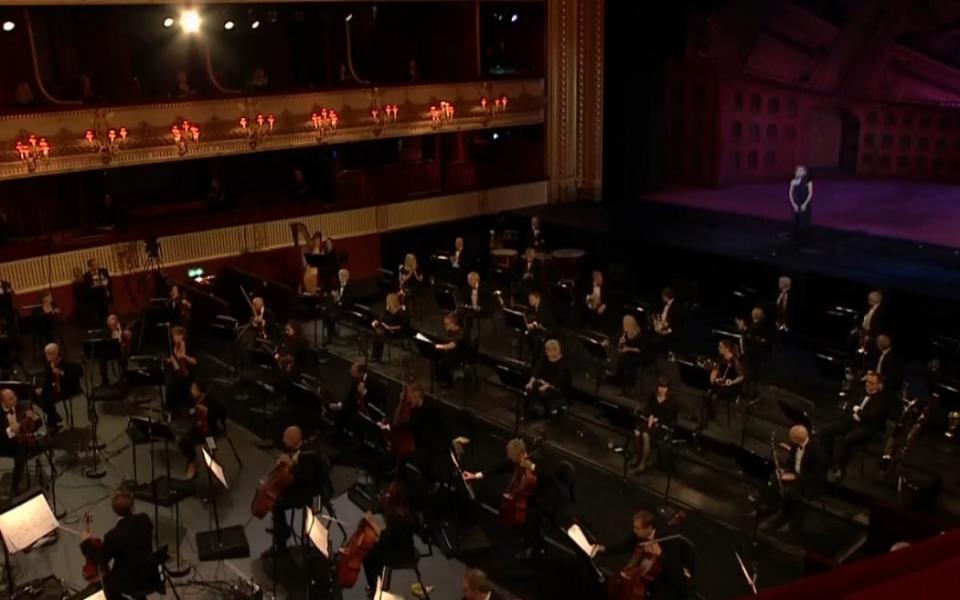The Royal Opera: Live in Concert, review: a dazzling evening of much-loved classics

It was, as on-stage presenter Katie Derham put it, a parade of “scintillating show-stoppers”. The Royal Opera has clearly decided that now is not the time to be challenging; it’s a time to dazzle. Dazzling costs money, but unlike most performing arts organisations which are struggling just to survive, the Royal Opera can call on well-heeled sponsors (Rolex in this case). It allowed them to give their fans what they are surely craving: the reassurance of the familiar, and an impressive array of talent flown in from every corner of the world, just as if Covid-19 didn’t exist.
Not that putting on this sequence of much-loved numbers from well-known operas didn’t have a few hiccups along the way. The most visible sign of that was star Lithuanian star soprano Kristine Opolais taking the place of the advertised Sonya Yoncheva. But if a myriad hurried changes of programme preceded the show, the show itself ran as smoothly as butter.
Visually and aurally it was much more satisfying than the ROH’s previous streamed shows back in June. Those had been intimate affairs, with just a few singers, dancers and players on stage. One was aware of the huge empty auditorium, somewhere beyond the lights. Here the whole space was a blaze of light. The stalls had been removed to make way for the orchestra, the boxes were filled with chorus members, the stage had a jaunty backdrop. The whole look and feel shouted “look out everybody, we’re back, in style”.
How to start such an evening? With the famous aria Largo al Factotum from Rossini’s Barber of Seville of course, delivered with easy mastery and no over-exaggerated comic face-pulling by Italian tenor Vito Priante. American singers Lisette Oropesa and Charles Castronovo were vocally distinguished in a scene from Donizetti’s Elixir of Love, though the comedy of the scene fell flat; the ripe romanticism of the Gavotte from Massenet’s Manon suited Oropesa much better. The young Russian mezzo-soprano Aigul Akhmetshina, a member of the Royal Opera’s Jette Parker Young Artists Programme proved what a great investment she’s been for the house, in a rendition of Non più mesta from Rossini’s Cinderella that was pert, agile and altogether winning.

Not everything was blemish-free. Kristine Opolais’s normally radiant soprano voice seemed tired in the famous Moon aria from Dvořák’s Rusalka. And Gerald Finley, though vocally enormously distinguished and subtle, was comically miscast as the two villains Iago from Otello and Scarpia from Puccini's Tosca. He gurned, he glared, he made one eye seem beadily bigger than the other, but it was no good. You just knew that this was a good guy pretending to be bad. Even so, the closing scene from Act of Tosca was thrilling, with the ROH orchestra and chorus under Antonio Pappano in blazing form.
So a fine evening, but it only temporarily quelled one’s unease. In Europe, opera houses are stirring into life; at Covent Garden the empty performance diary stretches away into infinity. A plan for the future is the real reassurance we need.
This event is available to watch on demand until 2 October

